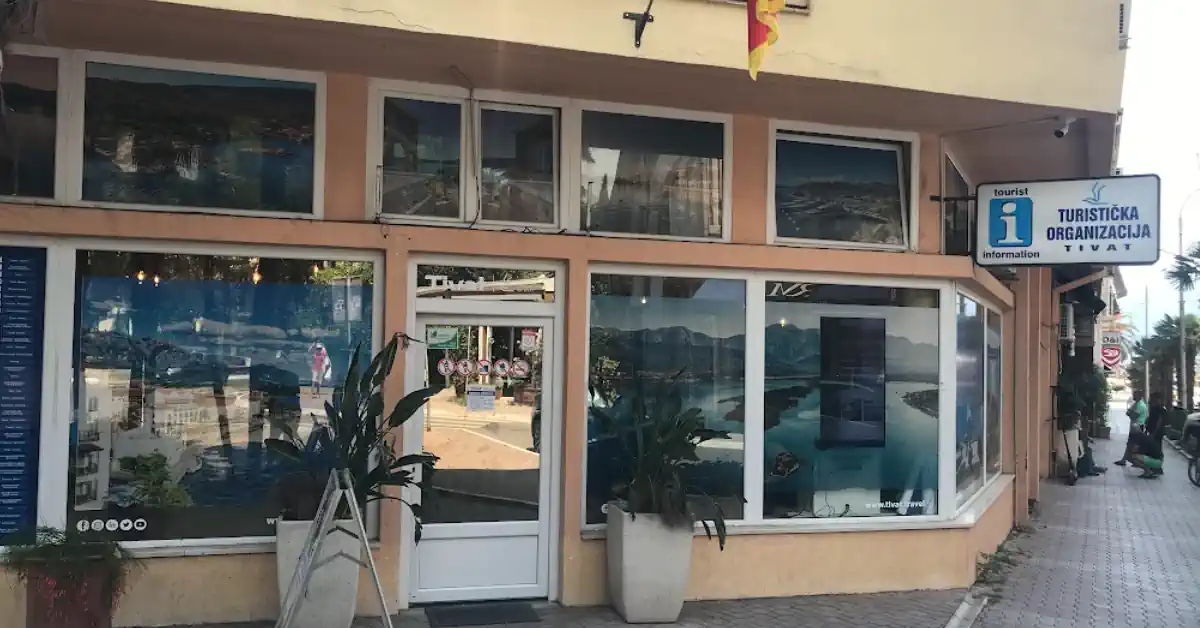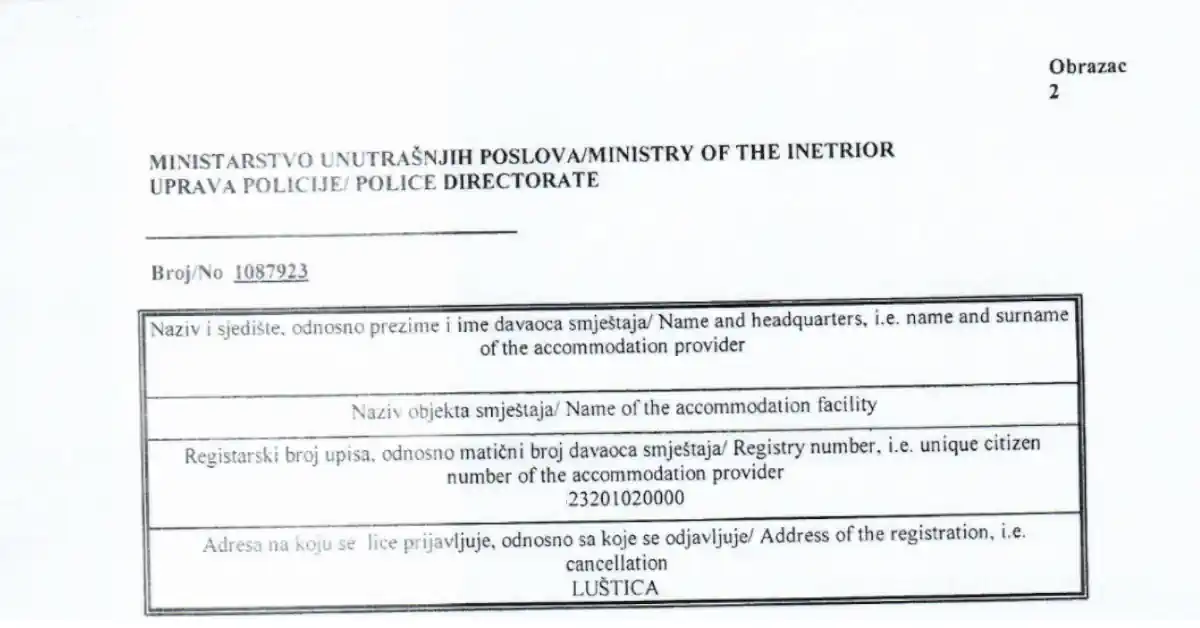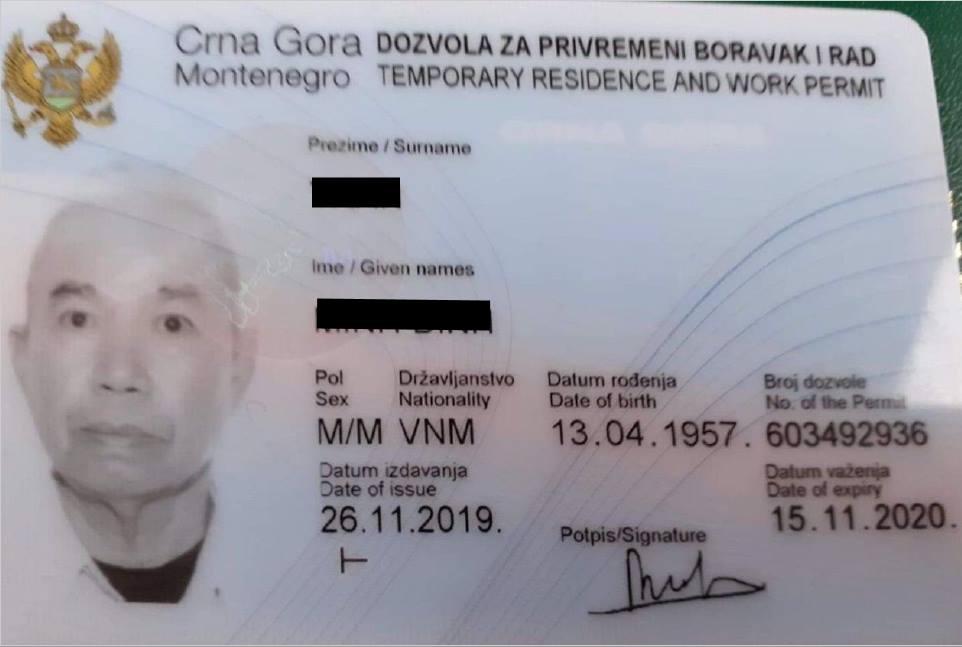Adriacom I Business Services & Immigration
Montenegro Awaits - Let's Make it Yours.
Tourist Taxes in Montenegro
All non-residents of Montenegro visiting the country for up to 90 days, most notably tourists and business travelers, must register their stay in one of the local Tourist Information Centers – within two days of arrival. Confused? Read on to find out everything you need about Montenegro’s mandatory tourist tax and its short-term stay registration system.
Tourist Information Centers (or simply: Tourist Infos) can be found in most Montenegrin cities, towns, and resorts. They are responsible for recording your name, passport number, and address in Montenegro and they register you at your booked tourist accommodation or any private residence. It is recommended to arrive with a passport, but European IDs are also widely accepted.
Table of Contents
ToggleIf you plan to live in Montenegro long-term and apply for a residence permit during your stay, make sure to undergo the tourist registration process first – not being registered could complicate things and incur a penalty. You may need to leave through the Montenegrin border and ask the immigration officer for a new stamp on your passport before being able to register with the Tourist Info Center again.

Tourist Taxes at a Glance
- Tourist Taxes are charged by the day: 1€ a day for adults, 0,50€ for teens (12 – 18 years), and 0€ for children
- Not paying tourist taxes can result in fines of up to 200€ at the exit border control
- You need to register (or be registered) within 48 hours of entering Montenegro.
- The Tourist Information Centers are not open on Sundays and Public Holidays
- Many vacation rental owners do not automatically register you, so make sure to politely ask them to do it prior to your arrival
- When changing accommodations, you need to register each address change with the Tourist Info
- Tourist taxes are only paid for the first 30 days of your stay
Staying in a Hotel/Hostel/Campsite
Hotels, hostels, campsites, and all other types of official tourist accommodations are required by law to register your overnight stays within your first 12 hours in Montenegro. This means that you don’t have to go to the Tourist Info in person – the registration is taken care of electronically by your accommodation provider in Montenegro.
Staying in an Airbnb or with Friends

Regardless if you are arriving by boat and sleeping there overnight, staying at a campsite, or with friends and/or family members, your visit to Montenegro must be registered at any of the local Tourist Info Centers within 48 hours of crossing the borders. As mentioned above, vacation rental hosts do not always register your stay, so make sure to ask them to do it.
In case they are not subscribed to the eVisitor tourist registration system, they might ask you for your passport, which they then need to show in person at one of the Tourist Information Centers. In case you refuse to give your passport away, you can also perform the registration yourself, however, you would need to provide the exact name of your host and address of the vacation rental for that matter.
Staying in Your Own (or Your Family’s) Property
Thousands of non-residents own real estate in Montenegro, and even if you count yourself among those lucky ones, you would still need to register yourself as a tourist in Montenegro under the official address of your property. You would also need to prove ownership by presenting a recent property title at your nearest Tourist Information Center.
However, property owners in Montenegro are freed from paying tourist taxes. When staying with friends or family, registration again is mandatory, as well as paying the small daily tourist charge.
From Tourist Registration to Residency
If your eventual plan is to spend more than 90 days in the country and apply for one of the long-term residency options in Montenegro, then being registered as a tourist is the first step in the process. Since Montenegro is not part of the European Union, even European passport holders must legally regulate their individual residence status after the 90-day visa-free travel period.
The most straightforward and affordable option is to open a company in Montenegro, appoint yourself as the director, and receive residency based on your directorship in the company. Alternatively, you can also obtain residency in Montenegro based on property ownership or mooring contracts with one of the marinas.

Montenegro Residency Options
Explore your residency options in Montenegro for the current year! Did you know that you may qualify by just opening a local company with 1€ in start-up capital?

Company Formation in Montenegro
An investor-friendly tax landscape, quick formation procedures, and low costs make starting your limited liability company in Montenegro effortless.
Consequences of Not Registering
In case you have not managed to register within the first 48 hours of arriving in Montenegro, which is a common occurrence, especially for all first-time visitors to Montenegro, you can either hope not to be discovered when leaving the country, or, address the issue with the border police (inspektor za strance) and pay a fine of 60 Euros (40 Euros when paying on the spot).